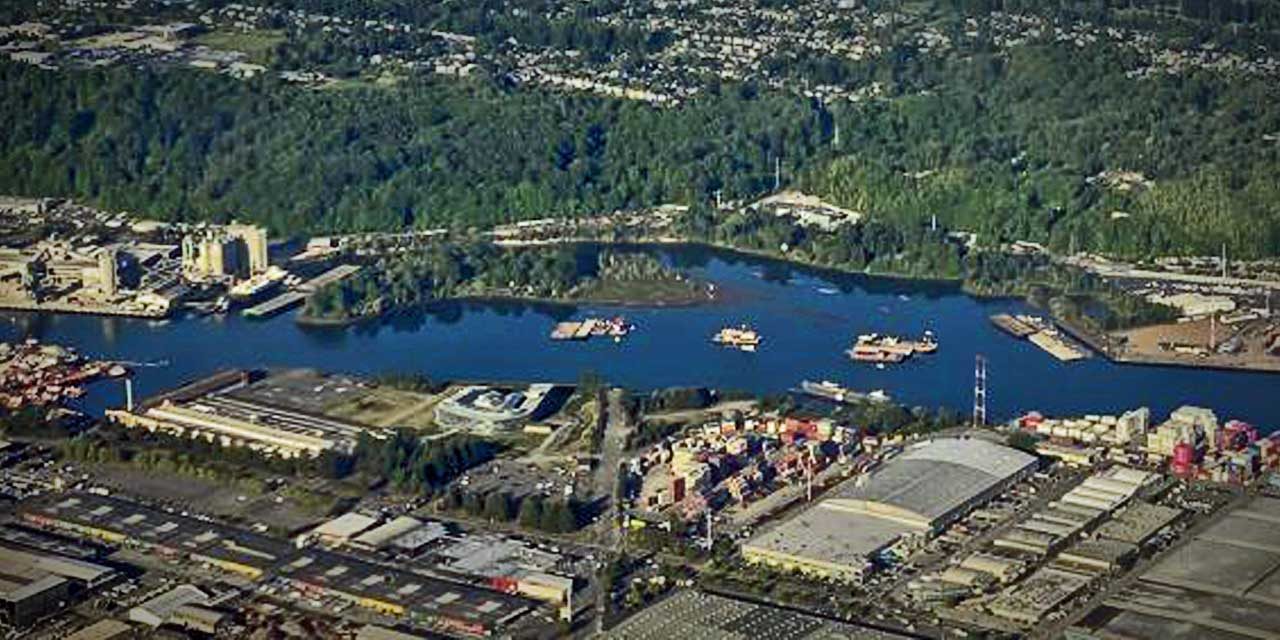Alicia Kellogg will join a team of six existing basin stewards who guide habitat protection and restoration work in King County’s major river basins and Vashon-Maury Island. The basin stewards are familiar with the land and community needs, working with landowners and other agencies to improve ecological functions for people, fish, and wildlife.
Creating the new basin steward position for the Duwamish River recognizes the decades of disproportionate impacts that the watershed’s residents have endured and will better align the multi-agency efforts along the industrialized river corridor.
“It is exciting to bring on the new Duwamish basin steward to represent and help restore this underserved watershed area, and interface with its river communities while assisting in salmon recovery and environmental stewardship, all of which has been a long-time coming need. It is great to see this role commencing,” said Tukwila Mayor Allan Eckberg.
“Bringing on a basin steward dedicated to the Duwamish River will strengthen our combined efforts to restore habitat for vibrant communities along the river and the native salmon that provide nourishment for Puget Sound orcas,” said King County Executive Dow Constantine. “By better aligning the efforts of multiple agencies and partnering with local communities, we can build on the progress we have made upstream in the Green-Duwamish Watershed.”
The Duwamish River serves as the nursery for juvenile salmon hatched miles upstream in the Green River and its tributaries. The final few miles of the Duwamish, where the river mixes with Puget Sound saltwater, is where young salmon adapt to life in a marine environment. Estuaries provide food for juvenile salmon and refuge from predators, allowing young fish to grow larger before entering Puget Sound, significantly increasing the odds of their survival and eventual return as adults to the spawning grounds as they complete their lifecycle.
King County has made progress in restoring the Duwamish River habitat, including the recently completed Chinook Wind Mitigation Project that resulted in nearly 6 acres of high-quality habitat. The Solid Waste Division last year removed nearly 2,000 toxic-coated pilings from the mouth of the Duwamish River. The Wastewater Treatment Division recently began operating a state-of-the-art treatment station in Georgetown that better protects the Duwamish River during heavy rainfall.
The Port of Seattle’s long-term commitment to restoring habitat in the Duwamish River includes the recent completion of Duwamish River People’s Park and Shoreline Habitat, a 14-acre park that was once an old Superfund site that has been cleaned and converted into a welcoming public space featuring excellent shoreline habitat, access to the water, and a small boat launch. The Port of Seattle’s cleanup of the landscape exceeded federal requirements, clearing the way for enhanced public use and improved fish and wildlife habitat.
Adding the new basin steward position will help advance the larger collective vision of partners to restore salmon habitat up and down the Duwamish River as a “string of pearls” that provides juvenile salmon places of refuge during their downstream migration. Other sites include Herring’s House, Cecil Moses, North Wind Wier, Riverton Creek, and Duwamish Gardens.
“Having a salmon steward responsible for the lower Duwamish Waterway provides critical support to the many communities, agencies, and tribal governments that have been dedicated to restoring salmon and all those dependent on the entire river system for many years,” said Seattle Port Commissioner Fred Felleman. “The Port of Seattle is proud to join King County, as well as the cities of Seattle and Tukwila in funding this position which reflects our commitment to collaborate for the benefit of people and the planet.”


